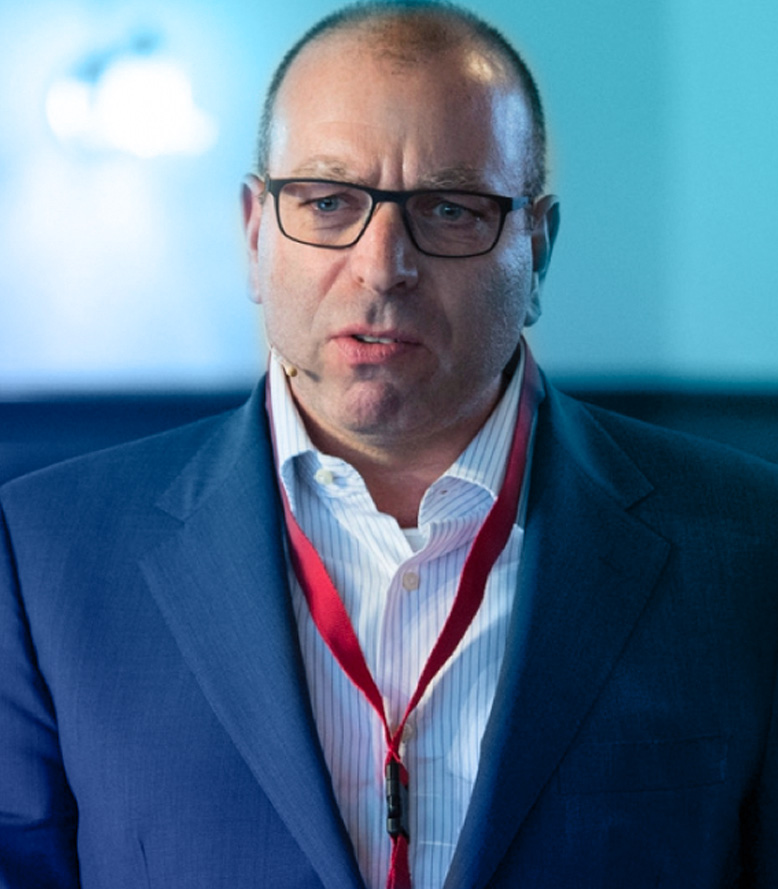Vaderis Therapeutics announced Tuesday morning that its lead drug candidate, an AKT inhibitor, helped reduce nosebleeds in people with hereditary hemorrhagic telangiectasia, a genetic disorder in which the blood vessels don’t form properly.
It’s the first industry-led clinical trial in the rare bleeding condition, according to Vaderis. The company was formed by former Novartis employees after studies suggested that an approach typically used to treat cancer could be leveraged for the blood vessel disorder, which is known as HHT for short.
In the early-stage clinical trial, 75 patients were given either 30 mg or 40 mg of Vaderis’ experimental drug, or a placebo, once a day for 12 weeks. Those who received the 40 mg dose saw “clinically meaningful reductions” in the frequency and duration of nosebleeds. They also experienced more nosebleed-free days, according to Vaderis, and saw regressions in the abnormal blood vessel growths related to the disease.
 Nicholas Benedict
Nicholas BenedictVaderis CEO Nicholas Benedict noted that the nosebleeds people with HHT experience can range from mild to very intense and frequent. “They can be anything from the patient having to lie down for an hour or two to the patient admitting him or herself to the [emergency room] at the hospital in order to try and quell the bleeding,” he said.
“Also these are largely unpredictable bleeds. Many patients complain, for example, that if they go to a restaurant, they would risk having a bleed at a restaurant and bleeding all over the tablecloth, and their shirt, and everything,” said Benedict, who left Novartis in 2007 and went on to lead a number of European biotech companies before co-founding Vaderis in 2017.
To measure the bleeds, the company developed an e-diary app that allowed patients to track their own bleeding events. But the company didn’t share specific clinical trial data, which Benedict told Endpoints News would be submitted for a future medical meeting.
The next steps include discussing a pivotal study for the drug with US and European regulators, as well as raising the funds to support the work.
Vaderis’ experimental drug is an AKT inhibitor, which has been more broadly used in oncology. In December, the FDA approved the first AKT inhibitor — AstraZeneca’s Truqap for certain advanced breast cancer patients. AKT is a part of a cell survival signaling pathway that is known as one of the most frequently dysregulated pathways in cancer.
Cancer-driving pathways have been implicated in a number of non-cancer diseases, and drug developers and physicians have looked to cancer therapeutics for inspiration. In 2022, Novartis’ breast cancer drug alpelisib was approved for overgrowth syndrome related to PIK3CA, which is part of the same cell survival signaling pathway.
The same research group from France that led the alpelisib study reported in July that Amgen’s KRAS inhibitor Lumakras was used to treat two people with severe arteriovenous malformations — an ultra-rare condition where a group of blood vessels forms incorrectly.
Vaderis opted to develop an AKT inhibitor specifically for HHT, dubbing it VAD044, rather than repurposing a cancer drug.
Safety was the primary measure of the early-stage study. Benedict said key adverse events in the trial were skin rash, hyperglycemia (or high blood sugar) and GI-related events like diarrhea, which are seen with other drugs in the class. He declined to share specific details, but added that “one might expect low rates of hyperglycemia” given the chemical properties of Vaderis’ experimental drug.
Vaderis is backed by Medicxi and Droia Ventures, and announced a CHF 18 million round when it launched from stealth in 2022.